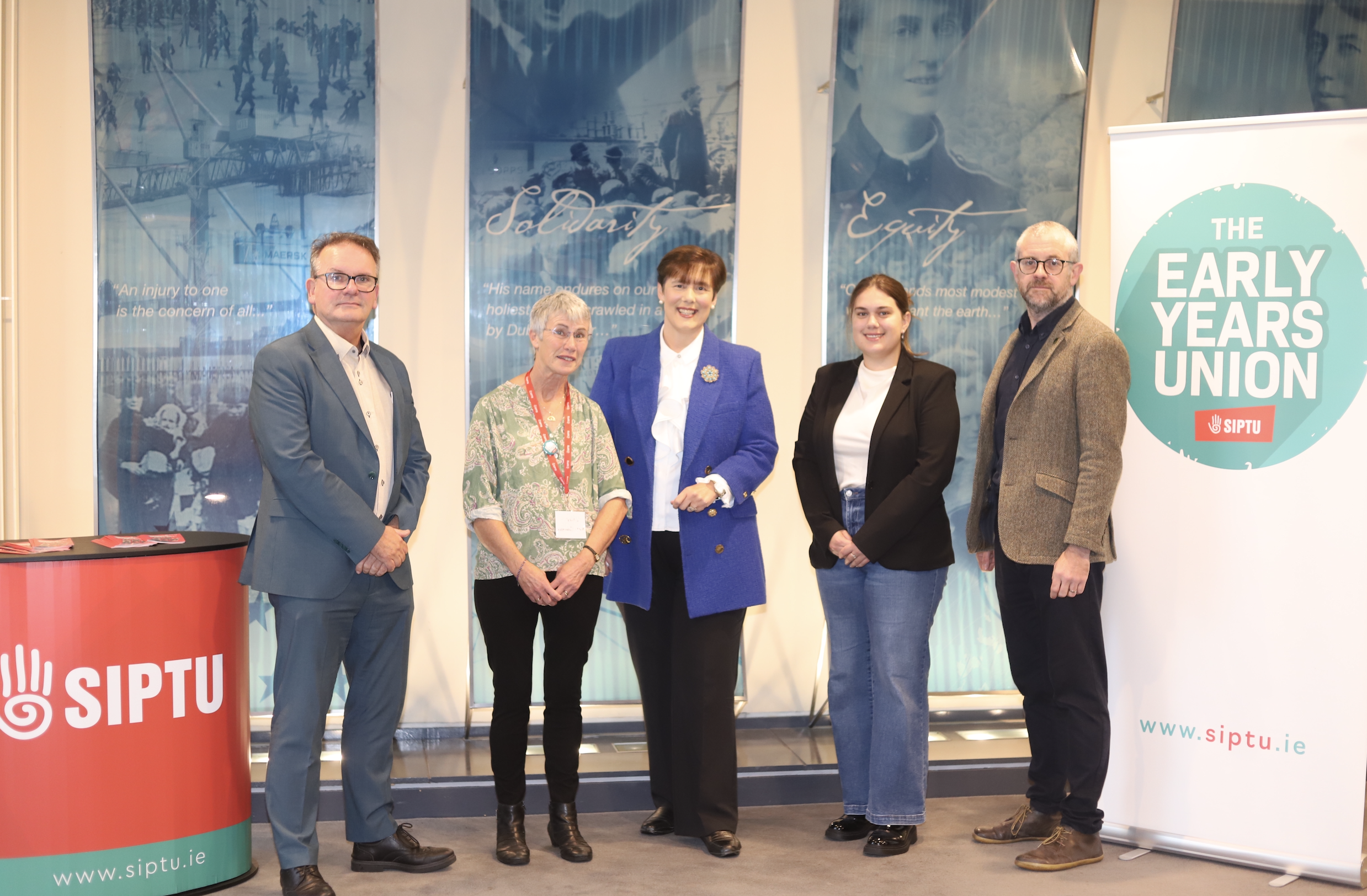SIPTU has called on the government to make a transformational change to the Early Years sector, similar to the historic decision by former Minister for Education, Donogh O’Malley, to introduce free secondary education for all.
Addressing the SIPTU – Early Years Union conference in Liberty Hall, SIPTU Deputy General Secretary, John King, said the sector is at a crossroads and needs a bold, new vision.
While welcoming the Minister for Children, Norma Foley, TD, to the conference, and acknowledging progress made through Core Funding and an imminent pay agreement, Mr. King warned that the current model is not sustainable.
“We have seen important steps forward, but the growing dominance of large corporate childcare chains, high staff turnover, and lack of spaces for children, particularly for full day care, are undermining quality and accessibility,” he said.
“Millions in public funds are flowing to private shareholders, pensions funds and private equity, instead of improving services. This is not the future we want for our children, families, or educators.”
Mr. King called for a ‘Donogh O’Malley moment’ in Early Years, stating: “Just as free secondary education transformed opportunities for generations, we need a bold decision now to make Early Years education a truly public service. That means the State taking responsibility for staff pay and introducing public provision alongside the existing private and not-for-profit services. Early Years education must be treated as a public good, not a private commodity.”
SIPTU is urging the Government to fully fund wages for all Early Years staff to ensure fair pay, improve retention, and guarantee that public investment supports quality. This would also allow for a dramatic decrease in parent fees, as wages constitute approximately 70 per cent of a service’s expenditure.
“This is about building a system that delivers for children, families, and workers alike. We can either entrench a market-driven model or create a publicly supported, high-quality Early Years system that reflects the value of this essential work,” Mr. King concluded.
In her address, Minister Foley acknowledged the “long-held frustration for SIPTU” that part of Core Funding should be ringfenced for pay. She confirmed that in Budget 2025, a specific allocation of €45 million has been ring-fenced to support pay improvements, contingent on new Employment Regulation Orders being established.
“I understand the new proposals provide for a 10 per cent increase in minimum pay. This represents another significant step toward ensuring fair pay for educators and practitioners working in the sector,” the Minister said.
